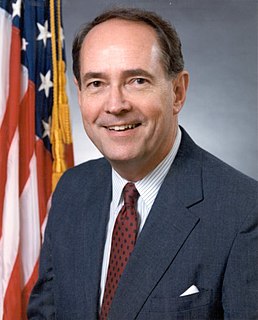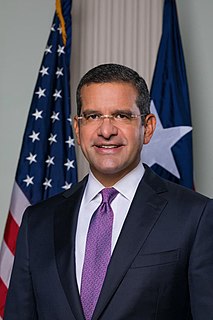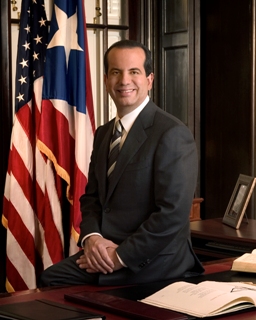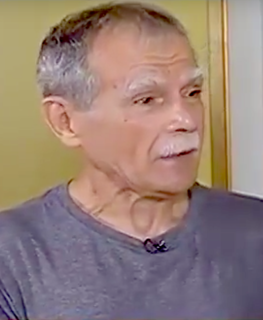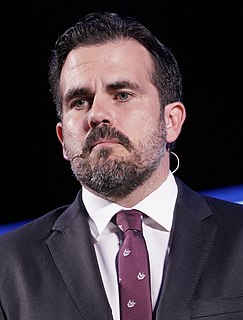A Quote by Dick Thornburgh
If U.S. national sovereignty continues, it is only as a state that Puerto Rico will have permanent 10th Amendment powers over its non-federal affairs, as well as voting power in Congress.
Related Quotes
Puerto Ricans are U.S. citizens, but by their own choice, Puerto Rico is not a state. The relationship has worked well for Puerto Rico - which has strengthened its culture, language and economy - and for the United States, which has helped create in Puerto Rico a showcase of democracy and prosperity for all of Latin America.
I believe that the overwhelming majority of Puerto Rico wants to be Puerto Ricans. I have been in five different states in the United States, and I have found young Puerto Ricans in the states who really love Puerto Rico, who really want to do something for Puerto Rico. And for me, Puerto Rico has to be the promised land of all Puerto Ricans, whether we are in the United States or wherever we are at. But this has to be the promised land. Annexation will never be the answer.
The proposed constitution, therefore, even when tested by the rules laid down by its antagonists, is, in strictness, neither a national nor a federal constitution; but a composition of both. In its foundation it is federal, not national; in the sources from which the ordinary powers of the government are drawn, it is partly federal, and partly national; in the operation of these powers, it is national, not federal; in the extent of them again, it is federal, not national; and finally, in the authoritative mode of introducing amendments, it is neither wholly federal, nor wholly national.
